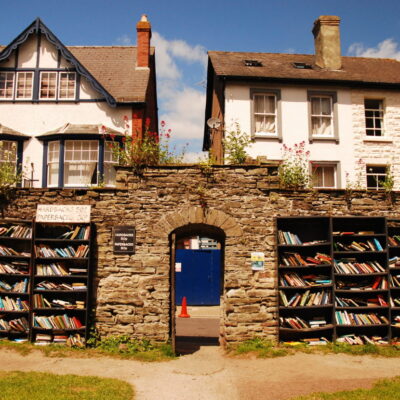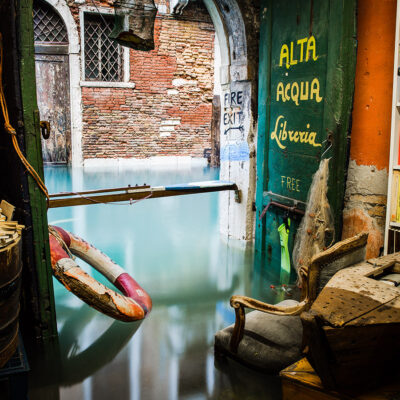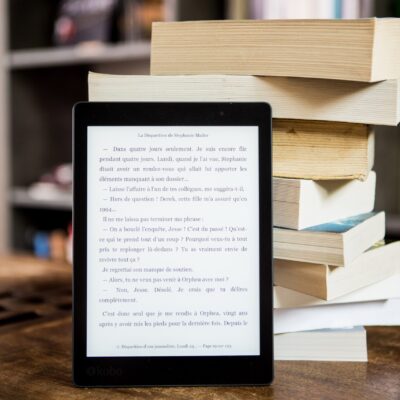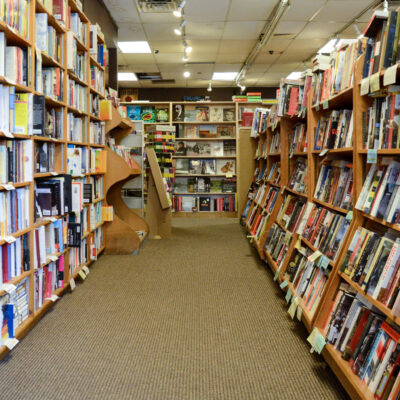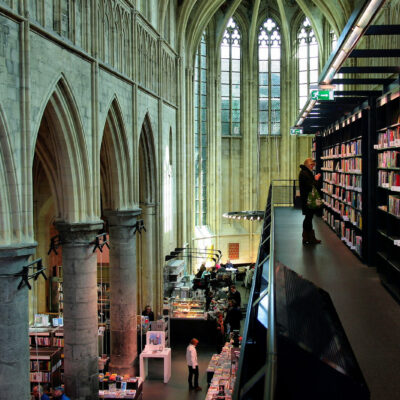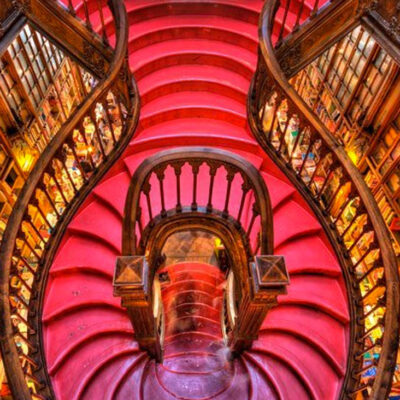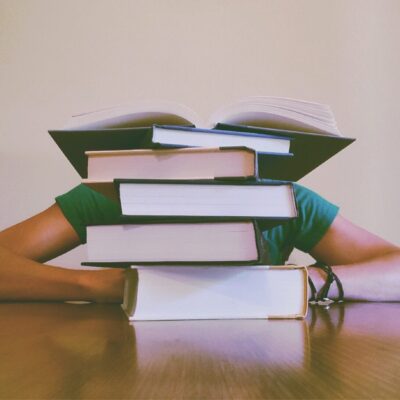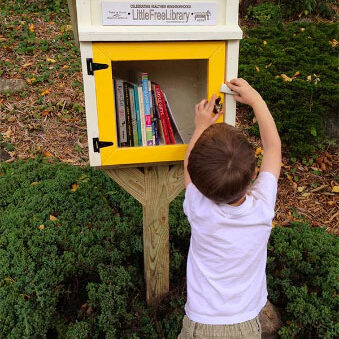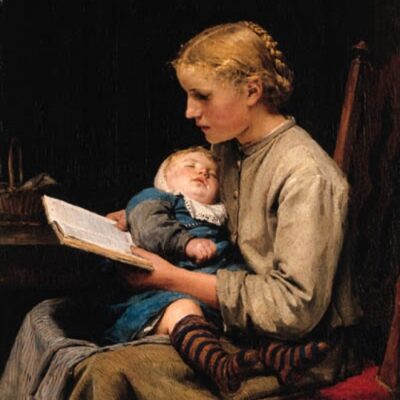The 100 Best Books of the 21st century
Biting polemics, historical treatises, inaugural novels, and noteworthy memoirs…here are the best books since 2000 from The Guardian List of the 100 Best Books of the 21st Century.
1. Wolf Hall by Hilary Mantel (2009)
To read Hilary Mantel’s story of the rise of Thomas Cromwell at the Tudor court, detailing the making of a new England and the self-creation of a new kind of man, is to step into the stream of her irresistibly authoritative present tense and find oneself looking out from behind her hero’s eyes. The surface details are sensuously, vividly immediate, the language as fresh as new paint; but her exploration of power, fate and fortune is also deeply considered and constantly in dialogue with our own era, as we are shaped and created by the past. In this book we have, as she intended, “a sense of history listening and talking to itself”.
Read the review
2. Gilead by Marilynne Robinson (2004)
Robinson’s meditative, deeply philosophical novel is told through letters written by elderly preacher John Ames in the 1950s to his young son who, when he finally reaches an adulthood his father won’t see, will at least have this posthumous one-sided conversation: “While you read this, I am imperishable, somehow more alive than I have ever been.” This is a book about legacy, a record of a pocket of America that will never return, a reminder of the heartbreaking, ephemeral beauty that can be found in everyday life. As Ames concludes, to his son and himself: “There are a thousand thousand reasons to live this life, every one of them sufficient.”
Read the review
3. Secondhand Time by Svetlana Alexievich (2013), translated by Bela Shayevich (2016)
The Belarusian Nobel laureate recorded thousands of hours of testimony from ordinary people to create this oral history of the Soviet Union and its end. Writers, waiters, doctors, soldiers, former Kremlin apparatchiks, gulag survivors: all are given space to tell their stories, share their anger and betrayal, and voice their worries about the transition to capitalism. An unforgettable book, which is both an act of catharsis and a profound demonstration of empathy.
Read the review
4. Never Let Me Go by Kazuo Ishiguro (2005)
From his 1989 Booker winner The Remains of the Day to 2015’s The Buried Giant, Nobel laureate Ishiguro writes profound, puzzling allegories about history, nationalism and the individual’s place in a world that is always beyond our understanding. His sixth novel, a love triangle set among human clones in an alternative 1990s England, brings exquisite understatement to its exploration of mortality, loss and what it means to be human.
Read the review
5. Austerlitz by W. G. Sebald (2001), translated by Anthea Bell (2001)
Sebald died in a car crash in 2001, but his genre-defying mix of fact and fiction, keen sense of the moral weight of history and interleaving of inner and outer journeys have had a huge influence on the contemporary literary landscape. His final work, the typically allusive life story of one man, charts the Jewish diaspora and lost 20th century with heartbreaking power.
Read the review
6. The Amber Spyglass by Philip Pullman (2000)
Children’s fiction came of age when the final part of Pullman’s His Dark Materials trilogy became the first book for younger readers to win the Whitbread book of the year award. Pullman has brought imaginative fire and storytelling bravado to the weightiest of subjects: religion, free will, totalitarian structures and the human drive to learn, rebel and grow. Here Asriel’s struggle against the Authority reaches its climax, Lyra and Will journey to the Land of the Dead, and Mary investigates the mysterious elementary particles that lend their name to his current trilogy: The Book of Dust. The Hollywood-fuelled commercial success achieved by J. K. Rowling may have eluded Pullman so far, but his sophisticated reworking of Paradise Lost helped adult readers throw off any embarrassment at enjoying fiction written for children – and publishing has never looked back.
Read the review
7. Between the World and Me by Ta-Nehisi Coates (2015)
Coates’ impassioned meditation on what it means to be a black American today made him one of the country’s most important intellectuals and writers. Having grown up the son of a former Black Panther on the violent streets of Baltimore, he has a voice that is challenging but also poetic. Between the World and Me takes the form of a letter to his teenage son, and ranges from the daily reality of racial injustice and police violence to the history of slavery and the civil war: white people, he writes, will never remember “the scale of theft that enriched them”.
Read the review
Smith began writing her Seasonal Quartet, a still-ongoing experiment in quickfire publishing, against the background of the EU referendum. The resulting “first Brexit novel” isn’t just a snapshot of a newly divided Britain, but a dazzling exploration into love and art, time and dreams, life and death, all done with her customary invention and wit.
Read the review
9. Cloud Atlas by David Mitchell (2004)
The epic that made Mitchell’s name is a Russian doll of a book, nesting stories within stories and spanning centuries and genres with aplomb. From a 19th-century seafarer to a tale from beyond the end of civilization, via 1970s nuclear intrigue and the testimony of a future clone, these dizzying narratives are delicately interlinked, highlighting the echoes and recurrences of the vast human symphony.
Read the review
10. Half of a Yellow Sun by Chimamanda Ngozi Adichie (2006)
When Nigerian author Adichie was growing up, the Biafran war “hovered over everything”. Her sweeping, evocative novel, which won the Orange prize, charts the political and personal struggles of those caught up in the conflict and explores the brutal legacy of colonialism in Africa.
Read the review
11. My Brilliant Friend by Elena Ferrante translated by Ann Goldstein (2012)
Powerfully intimate and unashamedly domestic, the first in Ferrante’s Neapolitan series established her as a literary sensation. This and the three novels that followed documented the ways misogyny and violence could determine lives, as well as the history of Italy in the late 20th century.
Read the review
12. The Plot Against America by Philip Roth (2004)
What if aviator Charles Lindbergh, who once called Hitler “a great man”, had won the US presidency in a landslide victory and signed a treaty with Nazi Germany? Paranoid yet plausible, Roth’s alternative-world novel is only more relevant in the age of Trump.
Read the review
13. Nickel and Dimed by Barbara Ehrenreich (2001)
In this modern classic of reportage, Ehrenreich chronicled her attempts to live on the minimum wage in three American states. Working first as a waitress, then a cleaner and a nursing home aide, she still struggled to survive, and the stories of her co-workers are shocking. The US economy as she experienced it is full of routine humiliation, with demands as high as the rewards are low. Two decades on, this still reads like urgent news.
Read the review
14. Fingersmith by Sarah Waters (2002)
Moving from the underworld dens of Victorian London to the boudoirs of country house gothic, and hingeing on the seduction of an heiress, Waters’s third novel is a drippingly atmospheric thriller, a smart study of innocence and experience, and a sensuous lesbian love story – with a plot twist to make the reader gasp.
Read the review
15. The Sixth Extinction by Elizabeth Kolbert (2014)
The science journalist examines with clarity and memorable detail the current crisis of plant and animal loss caused by human civilisation (over the past half billion years, there have been five mass extinctions on Earth; we are causing another). Kolbert considers both ecosystems – the Great Barrier Reef, the Amazon rainforest – and the lives of some extinct and soon-to-be extinct creatures including the Sumatran rhino and “the most beautiful bird in the world”, the black-faced honeycreeper of Maui.
Read the review
16. The Corrections by Jonathan Franzen (2001)
The members of one ordinarily unhappy American family struggle to adjust to the shifting axes of their worlds over the final decades of the 20th century. Franzen’s move into realism reaped huge literary rewards: exploring both domestic and national conflict, this family saga is clever, funny and outrageously readable.
Read the review
17. The Road by Cormac McCarthy (2006)
A father and his young son, “each the other’s world entire”, trawl across the ruins of post-apocalyptic America in this terrifying but tender story told with biblical conviction. The slide into savagery as civilisation collapses is harrowing material, but McCarthy’s metaphysical efforts to imagine a cold dark universe where the light of humanity is winking out are what make the novel such a powerful ecological warning.
Read the review
18.The Shock Doctrine by Naomi Klein (2007)
In this urgent examination of free-market fundamentalism, Klein argues – with accompanying reportage – that the social breakdowns witnessed during decades of neoliberal economic policies are not accidental, but in fact integral to the functioning of the free market, which relies on disaster and human suffering to function.
Read the review
19. The Curious Incident of the Dog in the Night‑Time by Mark Haddon (2003)
Fifteen-year-old Christopher John Francis Boone becomes absorbed in the mystery of a dog’s demise, meticulously investigating through diagrams, timetables, maps and maths problems. Haddon’s fascinating portrayal of an unconventional mind was a crossover hit with both adults and children and was adapted into a very successful stage play.
Read the review
20. Life After Life by Kate Atkinson (2013)
Atkinson examines family, history and the power of fiction as she tells the story of a woman born in 1910 – and then tells it again, and again, and again. Ursula Todd’s multiple lives see her strangled at birth, drowned on a Cornish beach, trapped in an awful marriage and visiting Adolf Hitler at Berchtesgaden. But this dizzying fictional construction is grounded by such emotional intelligence that her heroine’s struggles always feel painfully, joyously real.
Read the review
21. Sapiens by Yuval Noah Harari (2011), translated by Harari with John Purcell and Haim Watzman (2014)
In his Olympian history of humanity, Harari documents the numerous revolutions Homo sapiens has undergone over the last 70,000 years: from new leaps in cognitive reasoning to agriculture, science and industry, the era of information and the possibilities of biotechnology. Harari’s scope may be too wide for some, but this engaging work topped the charts and made millions marvel.
Read the review
22. Tenth of December by George Saunders (2013)
This warm yet biting collection of short stories by the Booker-winning American author will restore your faith in humanity. No matter how weird the setting–a futuristic prison lab, a middle-class home where human lawn ornaments are employed as a status symbol–in these surreal satires of post-crash life Saunders reminds us of the meaning we find in small moments.
Read the review
23. The Noonday Demon by Andrew Solomon (2001)
Emerging from Solomon’s own painful experience, this “anatomy” of depression examines its many faces–plus its science, sociology and treatment. The book’s combination of honesty, scholarly rigour, and poetry made it a benchmark in literary memoir and understanding of mental health.
Read the review
24. A Visit from The Goon Squad by Jennifer Egan (2011)
Inspired by both Proust and The Sopranos, Egan’s Pulitzer-winning comedy follows several characters in and around the US music industry, but it is really a book about memory and kinship, time and narrative, continuity and disconnection.
Read the review
25. Normal People by Sally Rooney (2018)
Rooney’s second novel, a love story between two clever and damaged young people coming of age in contemporary Ireland, confirmed her status as a literary superstar. Her focus is on the uncertainty of millennial life of millennial life, but her elegant prose has universal appeal.
Read the review
26. Capital in the Twenty First Century by Thomas Piketty (2013), translated by Arthur Goldhammer (2014)
The beautifully written product of 15 years of research, Capital made its author an intellectual star – the modern Marx–and opened readers’ eyes to how neoliberalism produces vastly increased inequalities. Full of data, theories and historical analysis, its message is clear, and prophetic: unless governments increase tax, the new and grotesque wealth levels of the rich will encourage political instability.
Read the review
27. Hateship, Friendship, Courtship, Loveship, Marriage by Alice Munro (2001)
Canada’s observant and humane short story writer, who won the Nobel in 2013, is at her best in this collection. A housekeeper’s fate is changed by the pranks of her employer’s teenager daughter; an incorrigible flirt gracefully accepts his wife’s new romance in her care home. No character acts as at first expected in Munro’s stories, which are attuned to the tiniest shifts in perception.
Read the review
28. Rapture by Carol Ann Duffy (2005)
A moving, book-length poem from the UK’s first female poet laureate, Rapture won the TS Eliot prize in 2005. From falling in love to betrayal and separation, Duffy reimagines romance with refreshing originality.
Read the review
29. A Death in the Family by Karl Ove Knausgaard (2009), translated by Don Bartlett (2012)
The first of Knausgaard’s relentlessly self-examining six-volume series My Struggle revolves around the life and death of his alcoholic father. Whether or not you regard him as the Proust of memoir, his compulsive honesty created a new benchmark for autofiction.
Read the review
30. The Underground Railroad by Colson Whitehead (2016)
A thrilling, genre-bending tale of escape from slavery in the American deep south, this Pulitzer prize-winner combines extraordinary prose and uncomfortable truths. Two slaves flee their masters using the underground railroad, the network of abolitionists who helped slaves out of the south, wonderfully reimagined by Whitehead as a steampunk vision of a literal train.
Read the review
31. The Argonauts by Maggie Nelson (2015)
An electrifying memoir that captured a moment in thinking about gender, and also changed the world of books. The story, told in fragments, is of Nelson’s pregnancy, which unfolds at the same time as her partner, the artist Harry Dodge, is beginning testosterone injections: “the summer of our changing bodies”. Strikingly honest, originally written, with a galaxy of intellectual reference points, it is essentially a love story; one that seems to make a new way of living possible.
Read the review
